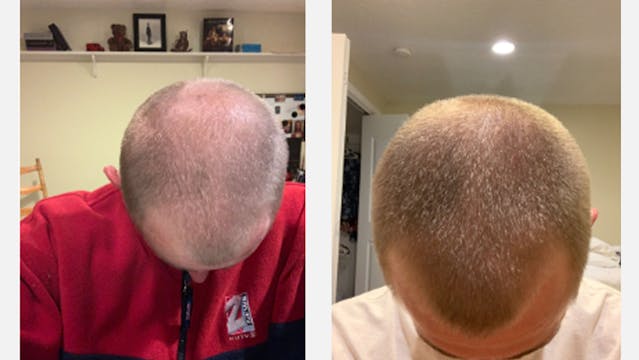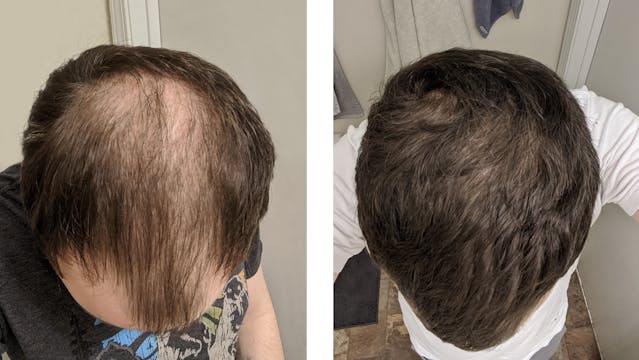Many men choose to take hair loss medication when they notice their hair isn’t as thick as it used to be, or when their hairline begins to recede. This is because hair loss medications such as finasteride and minoxidil have been proven to reduce and reverse hair loss in men with male pattern baldness.
Like most medicines, hair loss medications have some potential side effects which you should be aware of before you take them. Most people don’t experience these side effects, but a knowledge of them will help you identify any possible side effects should they arise.
Uncommon finasteride side effects
Potential uncommon side effects of finasteride (experienced by up to 1 in 100 people) include:
- Less desire to have sex
- Problems with ejaculation, for example a decrease in the amount of semen released
- Erectile dysfunction (problems obtaining or maintaining an erection)
- Depression
As previously mentioned, these side effects are uncommon and most people will not get them. They are often only temporary and usually disappear when treatment is stopped.
If you decide to use finasteride to treat your hair loss, a full list of side effects and precautions is included in the Patient Information Leaflet (PIL) provided with your treatment.
Common minoxidil side effects
Potential common side effects of minoxidil (experienced by up to 1 in 10 people) include:
- Itching
- Rash
- Dermatitis
- Unwanted hair growth on the face or body
Some of these side effects may only be temporary, and unwanted hair growth on the face or body can be minimised by washing your hands (or any part of the body other than the scalp that has come into contact with minoxidil) thoroughly with water after application.
If you chose Numan’s minoxidil to treat your hair loss, a full list of side effects and precautions is included on the Safety Information Page (SIP) provided with your treatment.
What can I do if I experience side effects?
If you experience any side effects when taking hair loss medication you should stop taking it and seek advice from a doctor. If you get the go-ahead from the doctor, you can try a different type of hair loss medication (e.g. if minoxidil didn’t work for you, you could try finasteride instead). Like most medicines, your body may be able to tolerate one more than the other, so you can experiment with minoxidil or finasteride to see which one works for you best. Just ensure you have a consultation with a doctor first before you decide to change medication.
The numan take
As with most medication, hair loss medication such as minoxidil and finasteride have potential side effects that you should know about before you take them. Not everyone gets these side effects, though, and they usually cease after you stop taking the medication. If you do experience any side effects, stop taking the medication and talk to your doctor. The doctor may suggest that you try another type of hair loss medication or suggest another alternative.






